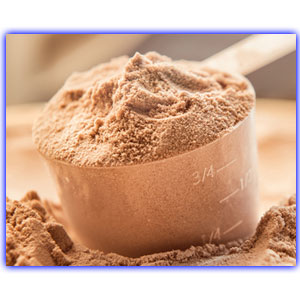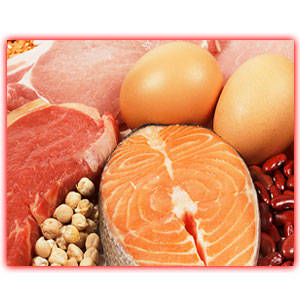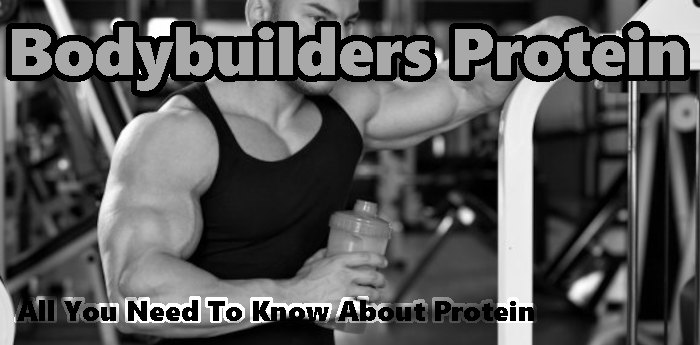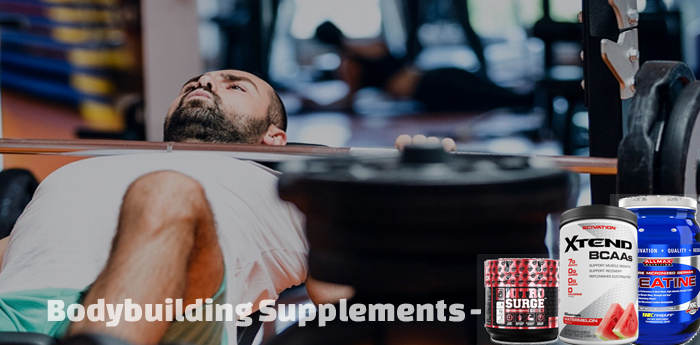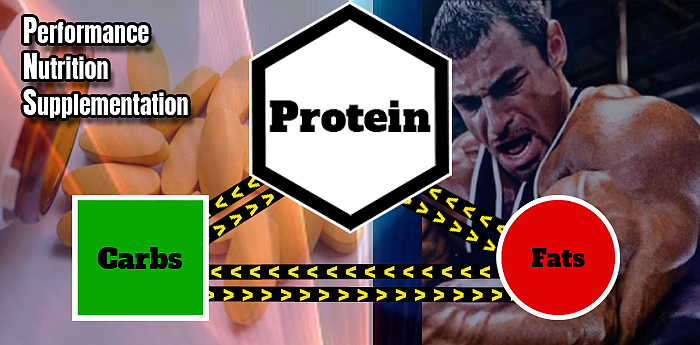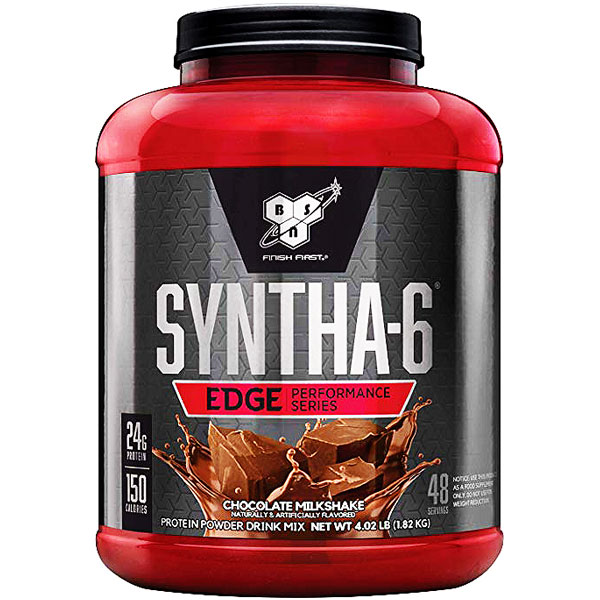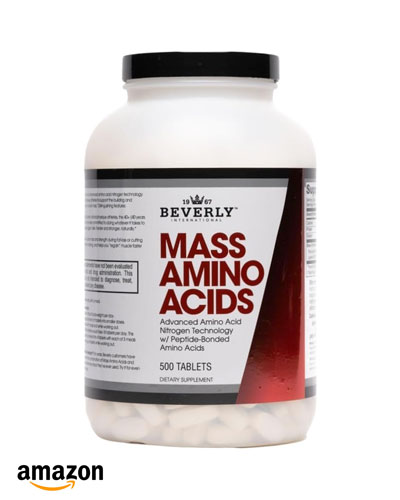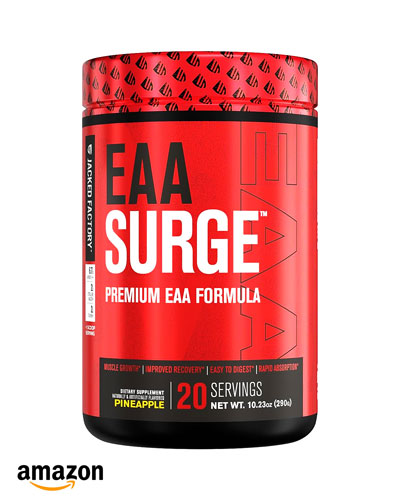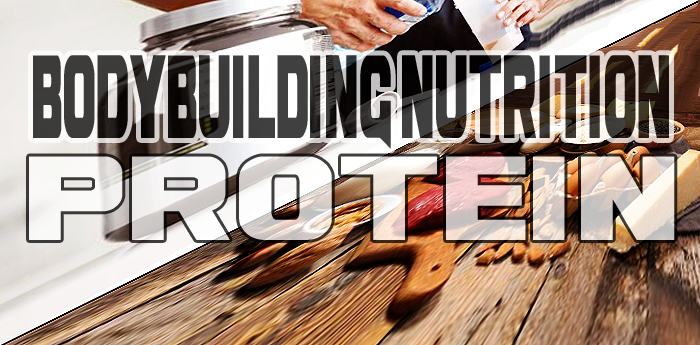

By: MuscleSports.net
A straight forward bodybuilders guide to protein!
Bodybuilders protein percentage for building mass!
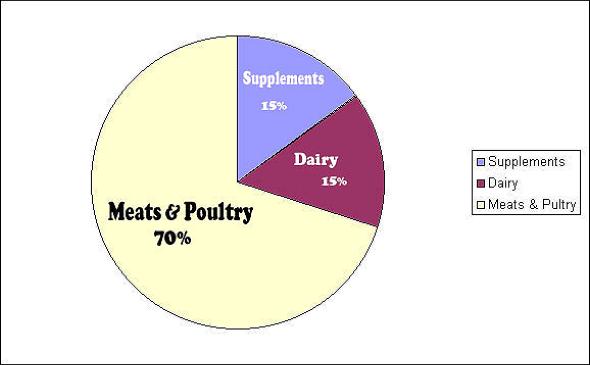
protein: protein is the second most substance in the human body besides water. We use protein in all function of the human body, from bone growth in our teen years to bench pressing 500 pounds. Protein is involved in all major functions. Proteins structure can be broken down it amino acids. Amino acids trigger billions of function in your body every second of everyday. Protein yields 4 thermo-calories per gram. Depending on what your goals, age, basal metabolic rate, conditioning level and body composition you should eat 4 to 6 meals daily with about 1.0 - 1.5 grams of protein per pound of bodyweight spread out evenly over these meals. Try to space your meals about every 2 and a half to 3 hours. Include a mrp drink daily if you find it hard to sit for a regular meal.
Protein Powders:
Top Protein Powder Sources:
- Whey Protein Isolate
- Whey Protein
- Whey Protein Concetrate
- Beef Protein Isolate
- Micellar Casein Protein
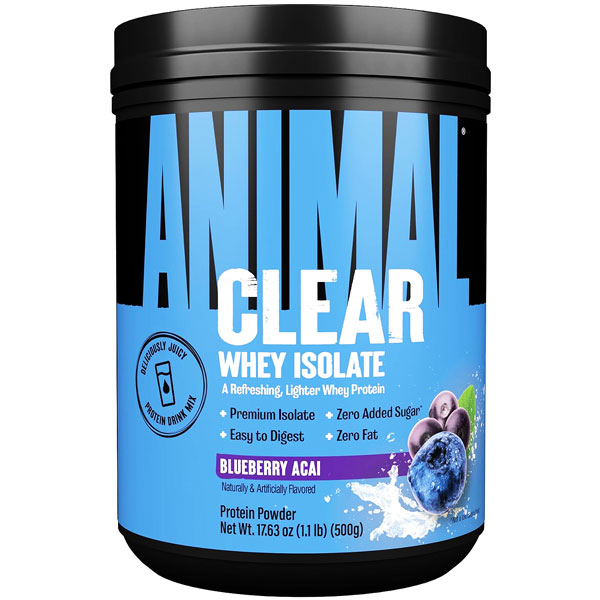
ANIMAL CLEAR WHEY ISOLATE
Refreshing Lighter Whey Protein!Protein Powder is not a miracle muscle building food like some people believe it is. I once operated a gym overseas and allot the members believed that protein powder was a miracle muscle building food substance. Todays protein powders are a convenient fat-free supplement, which contain refine protein sources, some carbohydrates, and maybe a few vitamins and minerals. Most are made from milk sources, egg whites, soy, and even beef. They contain all of the essential 22 amino acids that is necessary for muscle growth. It's best to have a protein shake one hour before working out and again within a hour after, You can also use slow digesting protein about 30 minutes before going to bed. Since protein powders are easy to digest and be readily utilized in the body they make it convenient for bodybuilders to get the protein they need to grow.
If you are religiously following the three exercise components of nutrition, training and recuperation tailored to your needs but not experiencing muscle gains or fat loss, you probably have a high metabolism for the former and a slow metabolism for the latter. Increase caloric intake for building muscle and decrease caloric intake for losing fat (especially carbohydrates and fat) while increasing your activity.
The basic rule of thumb for the recreational bodybuilder or a physically active person is to eat 1 to 1,5 grams of protein per pound of lean body weight. Training for a contest would require more protein to continue the muscle-building process and at the same time used as energy to lose fat because of the low carbohydrate consumption. So if you are in contest mode you may require as much as 2 grams per pound of body weight to keep your energy stores up and shed body fat at the same time. Most trainers only need to increase their intake to about 1.5 gram per pound. This should provide and adequate supply for protecting your hard earned size and replace some of the carbohydrates that have been ensconced to achieve that dry crisp hard look so desired in competition.
Animal Proteins:
Top Animal Protein Sources:
- Whole Eggs
- Fish
- Chicken
- Lean Beef
- Lean Pork
Animal Proteins: whole eggs, chicken, lean red meat, lean pork, and fish should be to bodybuilders first and foremost supplier of their daily protein intake each and every day, even during the competition diet. Protein food provide a more complete digestive process than their supplement counter-parts. When you consume a lean piece of red meat your whole body is involved in the digestive process. The body heats up internally as the digestive process begins. You actually start digesting your food in you mouth as you chew enzymes leach off certain aminos straight into the blood stream. Your saliva allows for the food you eat to travel smoothly down you esophagus and into the stomach. Now there's a who;e process of food passing down the throat or esophagus and into the gut but that way to technical for this article. Suffice to say if you chew you food and don't gulp it you won't choke because it won't end up in the wrong pipe(Wind Pipe).
A Digestive Lesson:
Once it reaches the gut or stomach your food churns around as the muscle of the stomach churn into around as different glands secrete various gas to break down the food into smaller particle and kill of any germs it may contain. Hydrochloric acid (HCl), which is strong enough to burn a hole through a carpet, is one of the stomach's secretions. It helps to soften food and kill any those germs it may contain. The stomach also secretes a substance called pepsinogen. This secretion reacts with the strong HCl in the stomach to produce the protein-digesting enzyme pepsin. This enzyme (Pepsin) then separates proteins into tow intermediate products of digestion, one is called peptone and the other proteose. this is done through a process called hydrolysis.
In hydrolysis, a water molecule is inserted between the two amino acids which are bonded together. This breaks the bond between them by "capping" the free reactive ends with the H and the OH. A protein, therefore, enters the stomach as a complex polymer and leaves in the form of the simpler intermediate structures known as peptone and proteose.
After churning in the stomach for hours your protein is now broken down into a thick gooey liquid called Chyme. Its this highly acidic compound that will enter your small intestine. As chyme enter the small intestine it slide into a tube connected to the stomach called the Duodenum. In the duodenum the acid of the stomach is neutralized with alkaline secretions before moving on into the small intestines. The pancreas also sends secretions into the duodenum. The most important substance that the pancreas secretes is trypsin, an enzyme which helps break down complex proteins into simple amino acids. Trypsin continues the work begun in the stomach by pepsin and completes the process of breaking down a protein into single amino acid molecules. It accomplishes this in the same way as the stomach - through hydrolysis, but this time instead of smaller pieces of food with proteins still bonded to each other, you end up with single amino acids which are ready to be absorbed for use by the body through the small intestines.
Sorry for the digestive lesson but this is why when you consume a diet based on clean whole proteins from food source that the body looks bigger and healthier because these sources provide more nutrients and aminos then a supplement can. They also trigger the body to perform functions that it won't when digesting a more refine protein source such as whey protein powders. Protein supplements definitely have a place in the bodybuilders diet, but the should complement the diet not lead it!
Now that you got some basic information on the main protein types you should be consuming and the ideal percentages that are best for general mass training, Here is a sample diet for atypical day protein intake that you can use to get started on the right foot. Remember that protein is the building blocks of all life as we know it so far so make sure you eat quality sources to fuel your bodybuilding goals.
| 5 Meal Plan |
|
|
Calories
|
Protein*
|
Carbs*
|
Fats*
|
| Breakfast |
|
4 Whole Large Eggs
|
296
|
24g
|
2g
|
20g
|
|
1 English Muffin (Whole Wheat)
|
134
|
6g
|
27g
|
1g
|
|
1 tbls Peanut Butter
|
94
|
4g
|
3g
|
8g
|
|
| Mid Morning Snack |
|
8 oz. nonfat Yogurt
|
213
|
10g
|
43g
|
<1g
|
|
| Lunch |
|
1 Can of Water Packed Tuna
|
220
|
41g
|
0g
|
5g
|
|
2 Slices of Whole Wheat Bread
|
140
|
6g
|
26g
|
2g
|
|
1 tbls of Fat Free Mayo/Salad Dressing (Olive Oil Mayonnaise)
|
11/37
|
0g/0g
|
0g/0g
|
0g/3.5g
|
|
1 Cup Unsweeten Apple Sauce (Motts)
|
100
|
0g
|
28g
|
0g
|
|
1 Energy Bar (Clif Bar Oatmeal Raisin Walnut)
|
245
|
10g
|
43g
|
5g
|
|
| Afternoon Snack |
|
1 High Protein Bar (AST Muscle Bar)
|
302
|
34g
|
31g
|
6.5g
|
|
| Preworkout Snack (30 Minutes Before) |
|
1 Scoop Whey Protein*
|
85
|
20g
|
1g
|
0g
|
|
5-10 Grams Creatine Monohydrate
|
0
|
0g
|
0g
|
0g
|
|
5-10 Grams Glutamine
|
0
|
0g
|
0g
|
0g
|
|
1 Large Orange
|
86
|
2g
|
22g
|
0g
|
|
| Postworkout Snack (Wihtin 30 Minutes After) |
|
2 Scoop Whey Protein*
|
170
|
42g
|
2g
|
<1g
|
|
5-10 Grams Creatine Monohydrate
|
0
|
0g
|
0g
|
0g
|
|
5-10 Grams Glutamine
|
0
|
0g
|
0g
|
0g
|
|
1 Plain Bagel
|
289
|
11g
|
56g
|
2g
|
|
2 tbls Jelly
|
112
|
0g
|
28g
|
0g
|
|
| Dinner |
|
Ground Beef, 95% Lean Meat (8 0z Raw Meat)
|
280
|
43.2g
|
0g
|
11g
|
|
2 Cups Brown Rice - Cooked
|
432
|
10g
|
90g
|
4g
|
|
1 Cup Mixed Vetables - Frozen
|
118
|
5g
|
24g
|
0.2g
|
|
½ Cup Coleslaw
|
41
|
1g
|
7.5g
|
1.6g
|
|
2 tbsp Kraft Free Fat Free Ranch Dressing
|
48
|
0g
|
11g
|
0.5g
|
|
1 Can Diet Soda 12 oz (Diet Coke)
|
4
|
0g
|
0g
|
0g
|
|
| Night Time Snack |
|
2 Scoops Casien Protein*
|
240
|
46g
|
8g
|
2g
|
|
12 oz. low-fat Milk
|
153
|
12g
|
18g
|
3g
|
|
2 tbls Peanut Butter
|
188
|
8g
|
6g
|
16g
|
|
|
TOTALS
|
4017 Calories
|
317g Pro.
|
478.5g Carbs
|
87.5g Fat
|
|
|
* Whey Protein supplements calories and protein grams will vary slightly from brand to brand.
|
|
* Casien Protein supplements calories and protein grams will vary slightly from brand to brand.
|
|
Other Bedrock Nutrition 101 Articles
Tags: Bedrock Athlete Nutrition Supplements Protein Muscle Builder Whole Foods
Train Smart & Train Hard!
DL
Thank You...

Send Us Your Comments:
Bodybuilding Beginners Guide to Protein - Comments
Related Articles
Comments:

 Nutrition Books
Workout Accessories
Videos
Workout Music
Nutrition Books
Workout Accessories
Videos
Workout Music
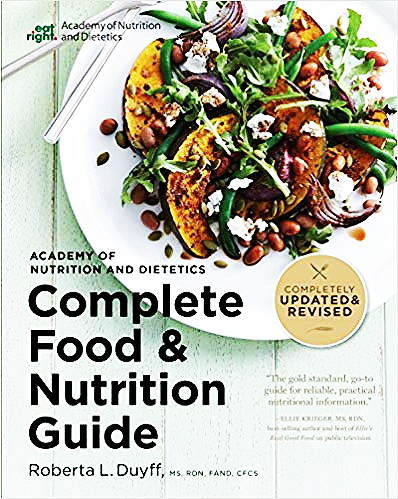

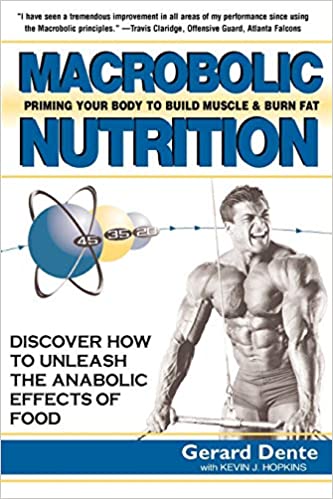

 By: MuscleSports.net
By: MuscleSports.net

